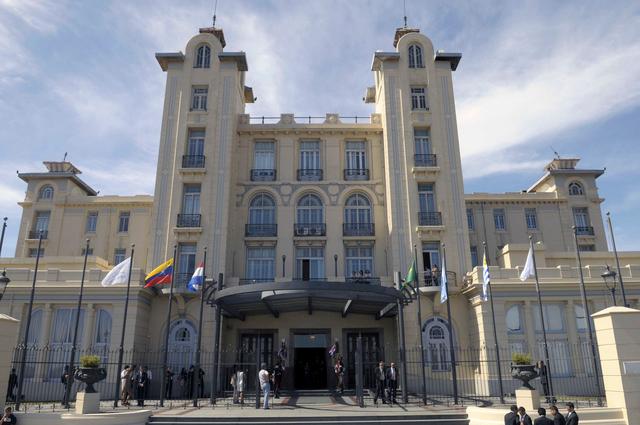RIO DE JANEIRO, BRAZIL – Mercosur is holding this Tuesday, July 6, a virtual meeting of its executive body and another of the Ministers of Industry, Trade and Services of the countries of the group, in preparation for the transfer of the six-month presidency of the bloc from Argentina to Brazil, which will take place next Thursday (8) during the summit of Heads of State and Government.
According to the Argentine Ministry of Foreign Affairs, the Extraordinary Meeting of the Common Market Group (GMC), the bloc’s executive body, is being held today. This Wednesday, it will present to the foreign ministers of each member country the “proposals, draft decisions and work programs to advance and deepen integration.”

This meeting is chaired by the Argentine Secretary of Economic Relations and Chief Negotiator, Jorge Neme. Also, this Tuesday, the Meeting of Ministers of Industry, Trade, and Services will be held.
THE MEETING OF FOREIGN MINISTERS, ON WEDNESDAY
Tomorrow, Wednesday, the Argentine Foreign Minister, Felipe Solá, will lead the meeting of the Common Market Council, made up of the Ministers of Foreign Affairs and Economy.
There will be two plenary sessions: first together with his counterparts from the Member States -Brazil, Argentina, Paraguay, and Uruguay- and Bolivia -which is in the process of accession-, and then adding the representatives of associated and invited countries.
The Secretary-General of the Latin American Integration Association (ALADI), Sergio Abreu Bonilla, the Executive President of FONPLATA-Development Bank, Juan Notaro Fraga, and the Executive Secretary of the Economic Commission for Latin America and the Caribbean (ECLAC), Alicia Bárcena, will also participate in the meeting.
According to the Argentine Foreign Ministry, some of the topics to be discussed at the dialogue and debate tables will be the common external tariff; the trade agreement signed with the European Union but not yet in force; the status of negotiations with other blocs and countries; the citizenship status of the bloc; and the “need to revitalize the bloc as the main platform for the international projection of our region.
The Extraordinary Meeting of the Trade Commission of the bloc; the Meeting of Ministers of Economy and Presidents of Central Banks of Mercosur and Associated Countries, and the Ordinary Meeting of the Forum for Consultation and Political Coordination were held Monday.
THE PRESIDENTS’ SUMMIT ON THURSDAY
The Summit of Heads of State of Mercosur, Associated Countries, and Special Guests will be held on Thursday in a virtual event. Argentina will officially hand over the six-month presidency to Brazil.
Both the host, Argentine President Alberto Fernández, and his counterparts from Brazil, Jair Bolsonaro, Paraguay, Mario Abdo Benítez, and Uruguay, Luis Lacalle Pou, will speak at the meeting.
According to sources at the Foreign Ministry, Chile’s Sebastián Piñera and Bolivia’s Luis Arce are also expected to participate. However, the participation of presidents from other countries in the region has not been ruled out.
Before the words of all of them and the traditional hammer blow that symbolizes the handover of the pro tempore presidency, the Argentine Foreign Minister will present a detailed report on the work carried out by his country in the last six months.
The last time the Mercosur countries met, virtually, was last March 26, in an event to celebrate the 30th anniversary of the regional integration bloc, in which the differences regarding the joint strategy of trade liberalization became evident.
Mainly, the tension is palpable in issues related to the so-called common external tariff and the mechanism of external trade negotiations as a single bloc.
While Brazil and Uruguay call for a less protectionist bloc, with a lower external tariff and more open to agreements with other markets, Argentina’s policy focuses on restricting imports to strengthen local industry.

